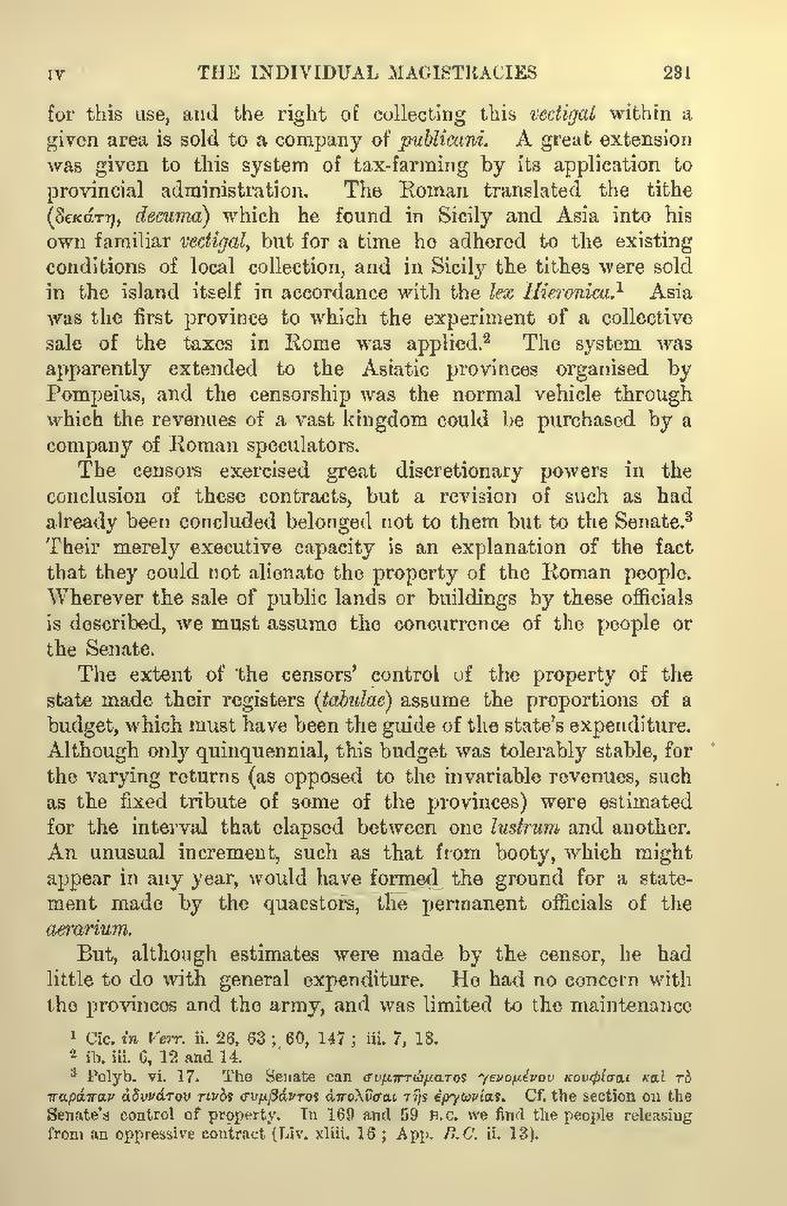for this use, and the right of collecting this vectigal within a given area is sold to a company of publicani. A great extension was given to this system of tax-farming by its application to provincial administration. The Roman translated the tithe ([Greek: dekatê], decuma) which he found in Sicily and Asia into his own familiar vectigal, but for a time he adhered to the existing conditions of local collection, and in Sicily the tithes were sold in the island itself in accordance with the lex Hieronica.[1] Asia was the first province to which the experiment of a collective sale of the taxes in Rome was applied.[2] The system was apparently extended to the Asiatic provinces organised by Pompeius, and the censorship was the normal vehicle through which the revenues of a vast kingdom could be purchased by a company of Roman speculators.
The censors exercised great discretionary powers in the conclusion of these contracts, but a revision of such as had already been concluded belonged not to them but to the Senate.[3] Their merely executive capacity is an explanation of the fact that they could not alienate the property of the Roman people. Wherever the sale of public lands or buildings by these officials is described, we must assume the concurrence of the people or the Senate.
The extent of the censors' control of the property of the state made their registers (tabulae) assume the proportions of a budget, which must have been the guide of the state's expenditure. Although only quinquennial, this budget was tolerably stable, for the varying returns (as opposed to the invariable revenues, such as the fixed tribute of some of the provinces) were estimated for the interval that elapsed between one lustrum and another. An unusual increment, such as that from booty, which might appear in any year, would have formed the ground for a statement made by the quaestors, the permanent officials of the aerarium.
But, although estimates were made by the censor, he had little to do with general expenditure. He had no concern with the provinces and the army, and was limited to the maintenance. Cf. the section on the Senate's control of property. In 169 and 59 B.C. we find the people releasing from an oppressive contract (Liv. xliii. 16; App. B.C. ii. 13).]
